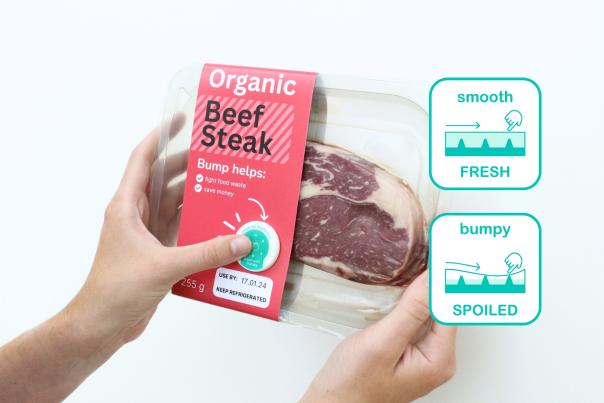
With 60% of food wasted by EU households still being perfectly edible, there is an ‘urgent need for innovative solutions’ to combat unnecessary waste. The research aims to empower consumers and promote sustainable food choices.
Solveiga Pakštaitė, Mimica's founder and director, said: "Bump helps print longer expiry dates by considering realistic storage conditions, rather than the worst-case scenarios used by the current expiry date system.
“We already know it offers significant economic and sustainability benefits for producers, but consumer support is essential for its success. This project will not only deliver our food waste saving technology into the meat and fish industries but also measure how well it helps people make more sustainable food choices."
Mimica's Bump Tag is a temperature-sensitive, tactile label that dynamically adjusts to food storage conditions, providing real-time information on food freshness. This technology allows for extended expiry dates on fresh products, potentially reducing home food waste by up to 63% and retail waste by approximately 50%.
Dr Rachel McCloy, lead researcher from the University of Reading, added: "Our role in this project is really important in understanding how new technologies can support consumer decisions. We're excited to be contributing to this research, which aims to help significantly reduce food waste across Europe. Ultimately, we want to see innovations like this contribute to a more sustainable food system.”
The University of Reading will conduct a series of consumer tests to evaluate the effectiveness of the Bump Tag in:
- Helping consumers make more sustainable food choices
- Reducing overall food waste in households – helping consumers save money and reduce waste
- Increasing consumer confidence in fresh food products